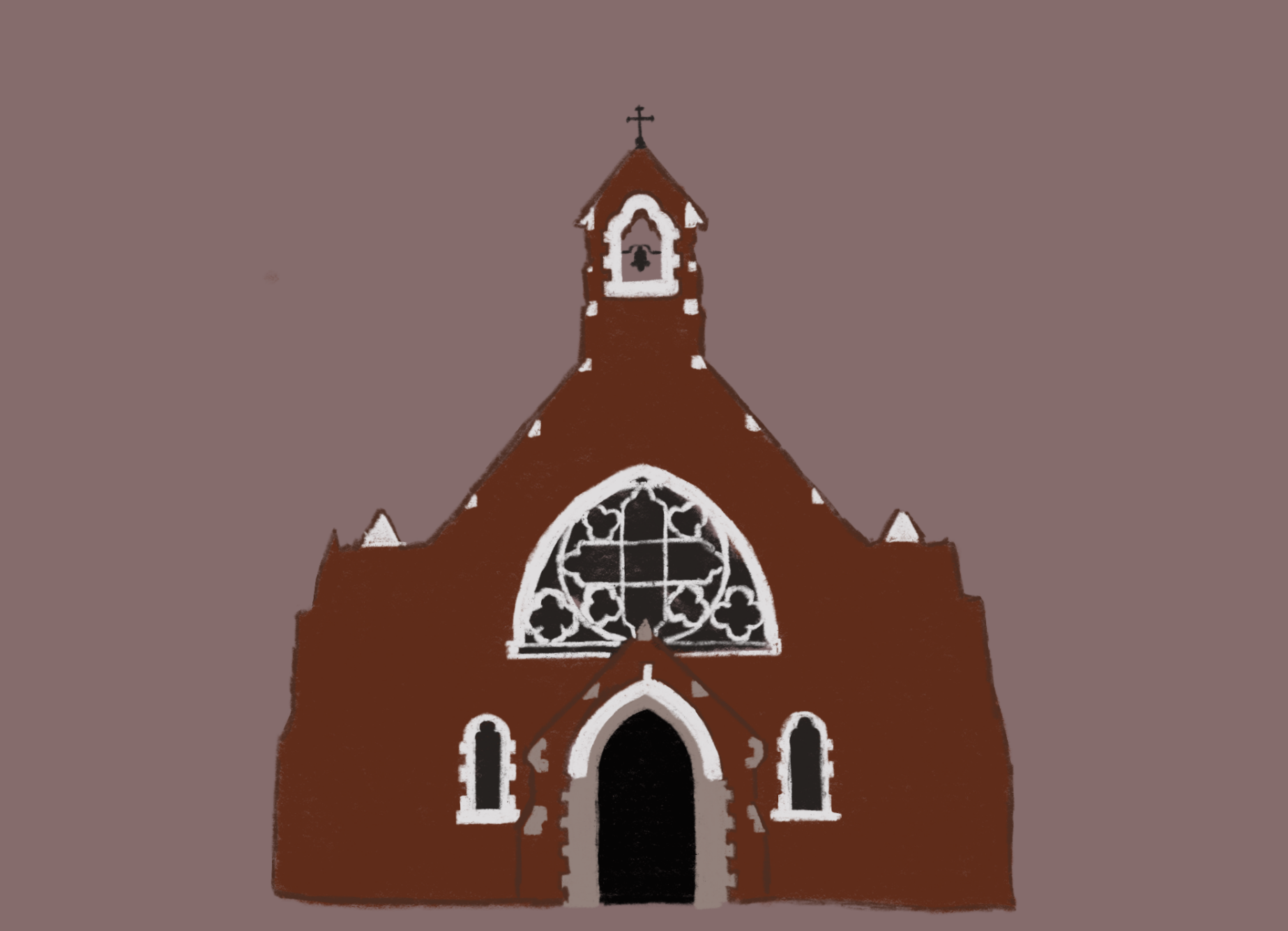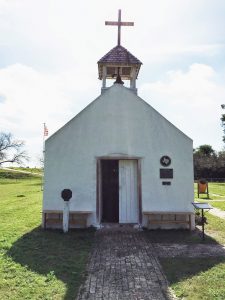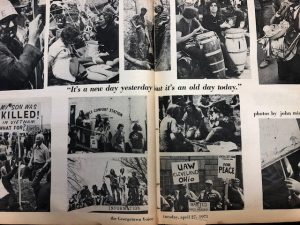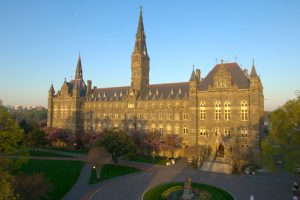On Easter Monday, the 266th Pope, Pope Francis (born Jorge Mario Bergoglio), passed away at 88 years old. As the first Jesuit and Latin American pope, his 12 year papacy left an indelible mark on the Catholic community at Georgetown and around the world, students told the Voice.
As a Jesuit university, Georgetown had unique ties with Pope Francis. In 2015, Francis used the Dahlgren Chapel’s iron cross in a 2015 visit to the Catholic University of America. Georgetown also has multiple initiatives in partnership with the Vatican, such as the Culture of Encounter Project, which focuses on interfaith dialogue and global issues.
Students spoke to the Voice about the Pope’s legacy at Georgetown, how the news has impacted their community, and their hopes about the future of the Catholic Church.
Lukas Pitman (SFS ’27), a Catholic Ministry organizer, fellow at John Main Center for Christian Contemplation, and a member of the Knights of Columbus, believes the Jesuit value of “faith that does justice” stands out in Francis’ long legacy of service.
“He’s someone that I personally look up to,” Pitman said. “His way of approaching faith is something to live out in action. Pope Francis embodies that, I think, more than any other person I’ve seen.”
Pope Francis died on Easter Monday, which many Catholics saw as symbolic.
“I don’t think that there was a better day for him that it could have happened,” Pittman said. “He went out on his own terms.”
On the night of Francis’ passing, the Georgetown community came together for an Easter Monday mass with special prayers for the Pope. Campus Ministry hosted a Rosary for the Repose of the Soul of Pope Francis followed by an interfaith candlelight vigil.
“Pope Francis, last year, proclaimed this year as the ‘Jubilee Year of Hope,’” Pitman told the Voice. “The student community coming together gave me a lot of hope.”
Students honored Francis’ service in the role of pope, attributing the creation of new Campus Ministry clubs and a deeper sense of faith in the student body to his influence.
“Pope Francis truly embodied the best of Catholicism,” Ulises Olea Tapia (SFS ’25), a Catholic student involved with Queer Christian Faith Community (QCFC) and Campus Ministry’s monthly Spanish-language Mass, said. “I spent a lot of time away from my religion and being fully atheist, and then I came back, and I’m so happy I did. If it wasn’t for the ministry of people like Pope Francis, I don’t know if I would be here.”
In December 2023, Pope Francis approved blessings for individuals in same-sex unions. Olea Tapia said that the decision made him feel more optimistic about a future where his faith would accept his identity.
“I really want to get married, and I would just love to be able to get married in the eyes of God and in a church,” Olea Tapia said. “And so that move was very meaningful to me because it started conversations about what gay marriage could look like in the Catholic Church.”
Students in QCFC believe Francis paved the way for the club, due to his impactful support of LGBTQ+ Catholics. Francis’ identity as a Jesuit, valuing justice and diversity, also supported QCFC’s existence, students said.
“I think that’s one group that really wouldn’t exist without Francis, and I also think it wouldn’t exist so freely, and easily, and uncomplicatedly, if we weren’t a Jesuit university,” CC Mesa (SFS ’26), a member of the QCFC, Catholic Women, and a Catholic Ministry retreat coordinator, said. “Those are two identities that can perfectly co-exist here.”
Olea Tapia emphasized Francis’ openness to the LGBTQ+ community and other marginalized communities as something inherent to Catholic values.
“There was this big event that he had that was a lunch with transgender people and transgender sex workers. And I’m like, ‘Yeah, that is something that Jesus would have done,’” Olea Tapia said, referencing a 2023 event. “I think that should resonate with all Catholics. We are all called to reach out to the margins and to see God in everyone.”
Mesa identified with Francis’ Latin American identity. Though Francis was Argentinian and Mesa is Cuban, Mesa said the connection to the Latin American community helped Mesa relate to Pope Francis’ leadership.
“He brought a very Latin American style to the Vatican,” Mesa said. “I think he brought a lot of that spirit of community at the forefront, and community as a source of power.”
Olea Tapia said that he sees parallels between Francis’ belief in inter-religious dialogue and Georgetown’s inter-religious programs.
“Interreligious dialogue, which is a big part of what Francis did, is at the core of our faith,” Olea Tapia said. “At Georgetown, it is very heartwarming to see chaplaincy ministers from a different array of religions. We all came together from different religions for the vigil last week.”
Rabbi Abraham Skorka, a Georgetown senior research fellow, wrote in a blog on Georgetown’s website that Pope Francis’ public statements in support of interreligious dialogue contributed to the two’s personal friendship of around 30 years.
“Whether he was the Cardinal Archbishop of Buenos Aires or the Pope, he never put himself into a superior position over me during our private meetings—whether in my synagogue community, in his office in Buenos Aires, or in the small room on the ground floor of Domus Sanctae Martae in the Vatican,” Skorka wrote. “He would often say, ‘We stand on the same level.’”
Mesa appreciated Pope Francis’ stance against Israel’s attacks on Gaza and Russia’s attacks on Ukraine. At a prayer in Dec. 2024, Pope Francis called for a ceasefire in Gaza and Ukraine, where he criticized Israel and Russia’s bombings of hospitals and schools.
“I think Francis took a beautifully important and courageous stance on the war in Gaza, admitting a lot of truths a lot of world leaders perhaps don’t,” Mesa said.
When reflecting on Pope Francis’ life, Olea Tapia called for the Catholic community at Georgetown and around the world to continue his spirit of humility, acceptance, and peace.
“I hope that the next pope is able to learn from Pope Francis and to be humble and to be accepting and to remember that church in Spanish, ‘iglesia,’ and in Greek, ‘ecclesia,’ literally means ‘everyone’—the community of everyone,” Olea Tapia said. “My message is one of hope. I think that Pope Francis did embody much of what makes Catholicism really beautiful.”






